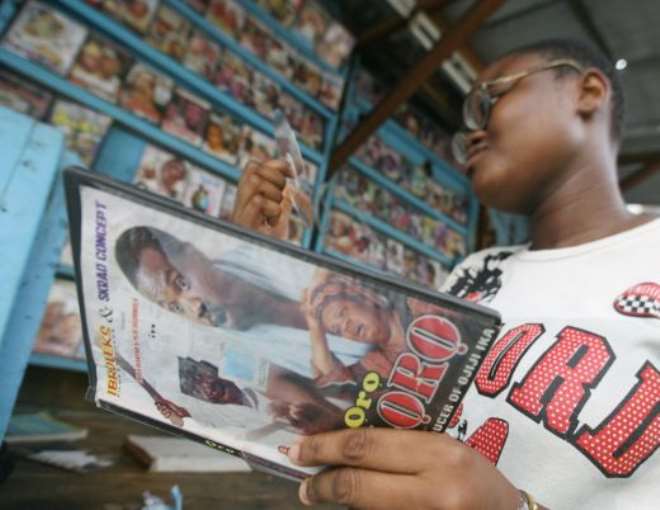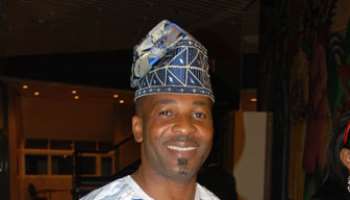On Students, optimism, and movies they like
Last week while sitting in the high court waiting for the next hearing in the MOPPAN lawsuit against the Kano State Censorship Board and other bodies to begin (it ended up being rescheduled for July 15), I received a phone call from a student representative saying they had been waiting for me for an hour in class. It turns out that I had apparently been assigned by the Mass Communications Department, which is hosting me while I am here in Kano doing my PhD research, to lecture the 4rth year course “Media and Gender” that I had taught last year. Everyone else in the department is so swamped with multiple teaching responsibilities that I felt it would be unfair to my colleagues refuse, especially because I already had material I had prepared for the course last year. This will be, however, the last time I am able to accept such an assignment from the university during my time in Kano because of restrictions (starting in August of this year) on work non-related to my research from the academic sponsors of my PhD research. Yet, while I was less than thrilled about teaching during a few months when I had planned to work on several articles and my dissertation research, I find it difficult to hold on to resentment when I am physically present in the classroom. It's such a joy to be in a class full of smart, spirited, and open-minded students, who seem so genuinely excited about learning. In them I see a hope and idealism that gives me encouragment after a month in which, I admit (perhaps some of it the lingering effects of the robbery), Nigeria had me very discouraged.
In all of the classes I teach, I have students write out a few of their reasons for taking the course, what they hope to do with their degree (in this case Mass Communications) when they graduate, and (for fun) their favourite movies (or in literature classes that I teach, I also add novels).
While we were discussing stereotypes, I asked, as an example, what might be some stereotypes about Nigeria. They called out “un-patriotic” and “unromantic” in addition to the expected “corruption,” “indiscipline” etc. But in answering my question about why they had studied Mass Communication, many of the students defied these stereotypes about Nigerian cynicism and “unpatriotism” with idealistic paragraphs about how they wanted to help their country and society after they graduated. The students mentioned wanting to establish careers in print and broadcast journalism/media, public relations, marketing, advertising, NGO work in health communication and behaviour change, fashion design and academia. In addition, (I'm afraid these responses reflect the gender inequality of the class which is made up of about 2/3 men and 1/3 women—an inbalance that I believe is reflected in the university at large) some of their motivations for studying Mass Communication were as follows:
Male: “[I want to] promote national unity in my country, growth in terms of economy, politics and culture, to protect individual rights, human rights and freedom of speech”
Male: “I want to help people to know their rights through media”
Male: “I hope to… be able to communicate efficiently globally”
Male: “I hope to become a professional journalist so as to come up with positive changes in the profession”
Male “[I hope to] promote peace and gender issues through the mass media, and to highlight the obstacles and stereotyping issues.”
Male: “I am taking the course because I was disappointed and embarrassed on how women are treated in our societies. I hope to learn how I could be able to help in addressing such problems…. I want to help in educating and informing people and equally to engage in investigative journalism.
Female: “As the saying goes the pen is mightier than the sword. So in order to effect changes in our community and the nation at large therefore there is the need for effective communication…”
Male: “[I want to] disseminate some issues affecting our people that are not or under reported in the broadcast and print medium. To become the voice of the voiceless.”
Female: “I would … like to establish my own media organization to give people a means of employment and helping people to air their views and to also create awareness among them on various issues arising”
Male: “After realizing the power of media, I decided to study mass communication to help the less priviliged.”
Male: “I hope to use [the Mass Communications Degree] to serve in developing my country, the nation and beyond by being a sincere media practitioner.”
Female: “I hope to educate, enlighten, and entertain people both in rural and urban areas in order to make them know what is happening around the globe”
And specifically from women on gender:
“I hope to learn my role as a female in broadcast media and the position of my opposite sex as well (male) so that I can't be cheated.”
“I'm interested in knowing why people tend to differentiate male from female while we are all human and we could actually do similar things…. knowing about gender in our society will help me interact more, know my rights, etc.”
“I feel not a lot of women are in the media industry. I also feel as a woman I have a lot of potential to give the media industry…. I … took this course to let other people know that a woman is capable of handling the camera, capable of being a good journalist and has the concept of being innovative in advertising. This would reflect what I intend to become in future… to give the notion that a woman is as capable in the media industry as any other man.”
Now, certainly some of these responses might have been an attempt to present themselves to me in a positive light, but (being an irrepressible optimist who can't stay down much longer than a month) I tend to hope that the liveliness and passion I see in these fourth year students (in their classroom discussion as well as their written career goals) are an indication of better things to come. (If only these bright young students can escape the swamp of the past and present… Is this just the idealism of all students before they get pounded down by life? Can we (to appropriate an Obama campaign cliché in a question that is as applicable to Nigeria as it is for the U.S.) take hope and turn it into substantial change? Can the media, through pointing out inequalities and injustice, actually bring about change or merely be impotent scolders with no way to act? For those who want careers in advertising and public relations, will campaigns like the “Good People, Great Nation” actually be of any use to anyone or just another slogan for people to make fun of [as a student so ably provided “Bad People, Nonsense Nation.] Have the “beautyful ones been born” yet? Will they ever be born?)
[…]
Not only do these little papers give me a better idea about the personality of the students and the composition of the class, but I always find the question of their favourite movies fascinating. My little survey is completely unscientific, but I think it provides some insight into the media that have influenced the popular imagination of this generation. I've divided the responses into rough categories here. I had said that they should (just for fun) write their favourite movies, and then as an example said, it can be anything: Nigerian movies in any language: Hausa, Yoruba, Igbo, English, Tiv…, Hollywood, Indian films etc. As a result I got quite a few people who just gave me a category like “Hausa movies” or “Indian films.” Some of them would write things like “Nigerian movies, English and Hausa.” (I have not noted in the results each time a person noted multiple loves.)
These responses come from 65 students. If this is like my other class (which ended up being a total of 135), more students will trickle in as the semester goes on.
Nigerian films (5 people mentioned Nigerian films in general as their favourite category, with two others mentioning specifically Nigerian English films)
Specific English Nigerian films other people liked were:
First Lady
Violated
True Love
World Apart
Hausa movies (10 people mentioned that their favourite movies were the general categories of Hausa films).
Two others were more specific, with one person saying:
“Hausa comedy (Ibro)”
and one saying “Filazal, a film produced by FKD productions”
Yoruba movies (also called Yoruwood by someone)
Three people mentioned Yoruba films as their favourite category
One person mentioned the Yoruba film Oleku, as a favourite
Igbo film (one person mentioned Igbo film as their favourite category)
American films (two people mentioned American films specifically as their favourite category; however, students mentioned more specific titles of “Hollywood” movies than any other category. I realize these are not all technically American films, since many of them are multi-national productions. I was not sure whether to classify Slumdog millionnaire, which was mentioned quite a few times as a “Hollywood film” or Indian film. I have decided to classify it as Indian, since that is how it is often referred to here, and since there are so many under the American/Hollywood division.
Hollywood films
–any detective film (American)
“Who am I?” Jackie Chan (Check whether this is Hollywood or Hong Kong production)
Anaconda
The Pirates of the Caribbean
Titanic
Prison Break (two people mentioned this TV series as their favourite and I know many others in the Kannywood film industry, including myself, who are obsessed with the series)
Roots, produced by Alex Haley
James Bond (Tomorrow Never Dies)—American movie
300 Spartans
Lord of the Rings
Music (not sure if this is a Hollywood movie or not?)
Soul Food
Harry Potter
Cat & Rat
Hope Floats, ConAir, Princess Diaries
Double Platinum, ATI, Slumdog Millionaire (see this counted under Indian category), Maid of Honor, The House Bunny
Pretty Woman
X-Men
High school Musical
Indian films/Bollywood (Five people mentioned Bollywood as a favourite category)
Slumdog Millionaire (four people mentioned this as a favourite film
Kal ho na ho (also one of my favourites, was listed twice)
Finally, the Islamic epic The Message was listed by one person as their favourite film.
A few others listed no films at all, one saying “The national and local movies are just developing, … personally I do not have any favourite movie because they do nto represent our culture and mode of thinking and doing things, but maybe if I come across any that pass this test I would accept it.”
So, that is my little portrait of my student's goals and movie favourites. Hopefully I will be able to maintain my enthusiasm through the rest of the month I am trying to cram this course into. (Send positive energetic thoughts my way… I really have to get my articles done too….)
Latest News
-
 "No Matter What You're Facing, Don't Give Up" - F
"No Matter What You're Facing, Don't Give Up" - F -
 Fire Outbreak: Toyin Abraham Sends Solidarity Mess
Fire Outbreak: Toyin Abraham Sends Solidarity Mess -
 "I'm Sorry, It's My Birthright" - Davido Slams Tr
"I'm Sorry, It's My Birthright" - Davido Slams Tr -
 "We Will Bounce Back Bigger And Better" - Iyabo Oj
"We Will Bounce Back Bigger And Better" - Iyabo Oj -
 "Afrobeats Artistes' Collaboration Would Increase
"Afrobeats Artistes' Collaboration Would Increase -
 "I'm Sure That I'm Deeply Loved" - Adesua Left Em
"I'm Sure That I'm Deeply Loved" - Adesua Left Em -
 "Showing Affection To Women Makes You A Real Man"
"Showing Affection To Women Makes You A Real Man" -
 "High Cost Of Living And Insecurity Are Ravaging N
"High Cost Of Living And Insecurity Are Ravaging N -
 "I'll Keep Expressing My Art From My Heart" - Kam
"I'll Keep Expressing My Art From My Heart" - Kam -
 Mr Macaroni Completes Advanced Acting For Camera C
Mr Macaroni Completes Advanced Acting For Camera C














